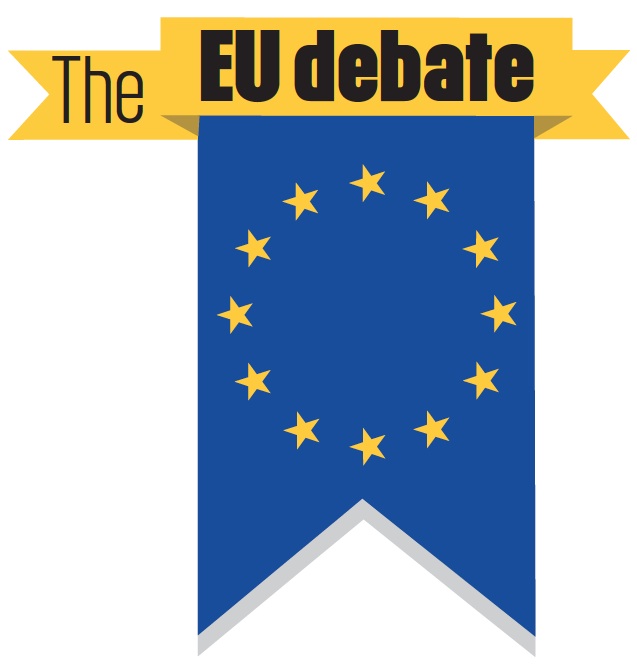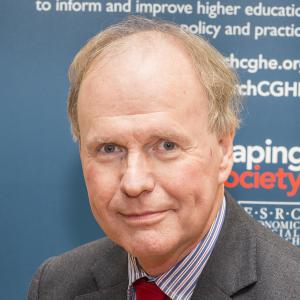Higher education is a European Union-friendly zone. With the exception of a few, often elderly, ultras, usually professors of economics true to the Thatcherite flame, most academics support continuing membership of the EU. So do most students, bar a few latter-day Jacob Rees-Moggs, as would be expected because the younger and the better educated you are the more you are likely to be pro-EU. The universities themselves clearly do well out of most European programmes, in particular the successive tranches of ‘Framework’ funding for research even if they are more agnostic about the benefits of student mobility and exchanges under the Erasmus programme.
End of story, surely – what else is there to say about higher education and the EU? Not quite, because even our EU-friendly universities cannot escape the nationalistic and narrow discourses that dominate the referendum debate. A nationalistic discourse structured round ‘us’, the UK, and ‘them’, Europe. Universities tend either to stand apart, preferring to see themselves as part of a mid-Atlantic Anglo-Saxon tradition and resisting the obvious historical fact that they have been at the heart of the development of the European university; or to patronise their (other) European peers by suggesting that our own peculiar practices – three-year undergraduate degrees, market obsessions, high tuition fees (at any rate in England) – represent a model that these backward folk must (eventually) follow. The famous (apocryphal?) headline ‘Fog in the Channel - Europe Cut Off’ comes to mind.
It is more difficult to blame UK universities for the second, narrow and instrumentalist, discourse that emphasises the role that contemporary universities play in the growth of a post-industrial knowledge-based society – and therefore their contribution to national and/or European competitiveness in the global economy. In their Lisbon Declaration of 2000, reiterated in 2005, European leaders set the ambitious target that Europe would be the most advanced world region by 2010 – until the global banking crisis, economic recession and stagnation in the eurozone put paid to this, perhaps always over-blown, ambition.
On this we and our fellow Europeans are at one. After a passing reference of culture, civilisation, critical enquiry, curiosity-driven research, the powers of the mind, Uncle Tom Cobbleigh and all, politicians pass quickly onto the meat of their message – how universities can boost employability and produce ever more ‘impactful’ research. And, shedding just as quickly the flummery of their faux-medieval/Renaissance robes, university leaders agree. This is the pattern everywhere in the world. Every self-respecting government has produced a policy paper along these lines, usually labelled ‘Clever [add country]’. No vice-chancellor, president or rector can resist talking about the economic footprint of their university, its contribution to the regional economy and the global research effort. In the booming higher education economies of east Asia, Singapore, South Korea, now China, there is little pretence that higher education is more than a machine to improve national competitiveness and boost lifetime earnings for individuals. Cynics may conclude that, in a world saturated by neoliberal thinking, these have become the only measures of success.
However, although Europe has generally gone along with these narrow and instrumental agendas for higher education, it has sometimes been with reticence and even regret. A residual respect has been retained in many European countries (Scandinavia, Scotland?) for what is called the ‘social dimension’. Some interpret this somewhat opaque phrase as a license to stick to wholly tax-funded university systems and eschew student fees. Others prefer a somewhat looser interpretation, emphasising the wider social responsibilities of higher education in open and democratic societies. Either way it is part of the European university’s DNA. More recently, Europe has become one of the most contested sites of globalisation, both its creative and ugly sides. European jobs have haemorrhaged to lower-wage countries lacking state-sponsored welfare systems (and the habits of solidarity bred by the horrors of the 20th century from Verdun to Auschwitz?). Its shores are besieged by the dispossessed, the debris of their lives littering the shores of the Aegean (Homer’s ‘wine-dark sea’).
Our academic and scientific connection with Europe – indissoluble, whatever the outcome of the June referendum – maybe offers an essential corrective. Its value, paradoxically, lies in Europe’s reticence and regret, its hesitation about wholly defining the purposes and value of higher education in terms of skills, jobs, earnings and growth. The economic case for higher education will never lack the heaviest of heavyweight support; it is the social, and cultural, case that deserves not to be ignored. Remembering we are Europeans keeps us honest.
Peter Scott will be speaking at the CIPFA-Covi debate on how the EU affects skills and education on Monday 23 May




















